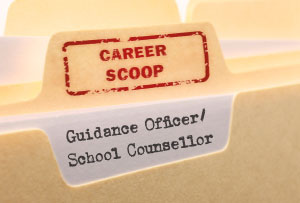 In a nutshell, what do you do?
In a nutshell, what do you do?
I support students and facilitate them to make good decisions about their current and future life.
Why did you decide to become a Guidance Officer?
I decided to become a Guidance Officer after teaching for about 20 years, to help young people in a different way. I also wanted a change to reinvigorate myself.
What path did you take to becoming a Guidance Officer?
When I left high school I received a teaching scholarship and became a High School Maths / Science teacher (Teaching was my last choice as a Year 12 student.) I soon learnt to enjoy it and used the experience to learn and improve my skills and help me to be a better person.
After about 20 years of teaching, I felt that I was stagnating and wanted a new challenge and didn’t want to go into administration, but have daily involvement with young people. Being a Guidance Officer was for me the perfect change. I completed a Masters in Educational Studies (Guidance & Counselling) and became a Guidance Officer (School Counsellor).
What, in your opinion, is the best bit of being a Guidance Officer?
The best bits of being a Guidance Officer were:
a) the independence most principals gave me to do my job. I could structure my day to best complete the things I needed to do
(b) The variety of work, helping young people in difficult situations
(c) helping young people thinking about their future and,
(d) helping them in their journey of self discovery to adulthood.
What do you think are the worst bits?
The worst bit was trying to help students in very difficult family situations (abuse, conflict etc) when there was no simple solution. Initially in my career as a Guidance Officer these situation were very draining emotionally (burn out potential).
I have since learnt how to deal with the most difficult and confronting situations and still be connected and there with the client.
Is it what you expected when you first started out – and what is different?
Most of it was what I expected but over my time the role has changed. Initially a lot of my time was around assisting with subject selection and career pathways. Now much of my time is dealing with welfare issues, behavior issues, mental health issues and relationship issues (personal and family). I also do a lot of liaising with external agencies to support students and families.
What do the public least understand – or mistake – about what you do?
I think people in general think I spend my time having a nice “one on one” conversation with students about anything and everything. They also think that I have the answer to all their problems. What career/course should I take, why I don’t “fix” their kid / student?
What kind of people tend to do well?
I believe there is no set type of person that wouldn’t make a good Guidance Officer. However, I do think that you need to be very self aware, love improving your skills and knowledge, be a listener (not many people are), and don’t mind being wrong (and admit it!)
Finally, a good Guidance Officer is a person who is always looking for new possibilities in their own life and in the lives of their clients.
Any advice for people looking at getting into this line of work?
Being a Guidance Officer is not a job you can just walk into. You need to be a teacher; I believe for at least 5 years (to understand the culture), and then do your postgraduate qualifications.
Look for opportunities to volunteer to help people, especially those on the margins of society.



